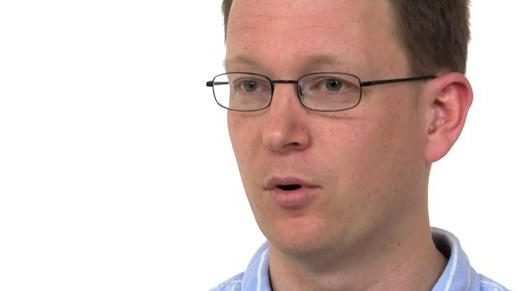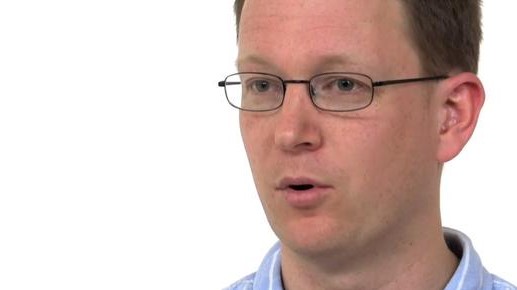Solas: You’re coming to Scotland soon, speaking on behalf of an organisation called “LivingOut”. So, who are LivingOut, and what’s your role?
ES: I’m one of the co-founders of Living Out, with Sam Allberry and Sean Doherty. We started it together back in 2013. It came out of a group of same-sex attracted church leaders who realised that our alternative stories of living with same-sex attraction under the lordship of Christ weren’t being told. We wanted to get our stories out there, so our website was launched. We then discovered that there was a need to equip churches, and train church leaders, so our leadership training “LOCAL Course” was developed. Various other things like books being written and published, short films being shot, us becoming a charity, all happened too. I now serve as our chair of trustees and travel and speak on behalf of Living Out around the UK (and elsewhere). This includes leading “LOCAL Course” leaders training courses all over the place, and speaking at other events too. Last summer included appearing alongside Solas’ Andy Banister at Creationfest; the trendiest Christian festival ever. It was all hipsters and surf-dudes in Cornwall. I felt very lost!!
Solas: All put together, that’s quite a workload!
ES: The other thing is that as well as Living Out, we are all involved in local churches and other ministry! So we are all addressing these issues not just from the perspective of people experiencing same-sex attraction; but also from experience of local church leadership. We’re all engaged, not just in the theology, and ethics of this, but also about caring for people better and teaching on this subject in a local context too. I am a pastor – I do this in my free time!
Solas: That must be quite a juggling act to sustain. Our mutual friend David Robertson spent a long time as full-time pastor and running Solas as well – doing three men’s work! Pastoral ministry can be all-consuming; both in terms of time and brain-space! How do you keep going? What’s your heart-motivation?
ES: I think that when it comes to the controversy surrounding sexuality, gender and identity, God is being good to us by making us think hard about these issues at the moment. We have lost contact with a lot of what the Bible teaches about each of those areas; and all the culture changes are making us really think and re-articulate biblical truths which we have rather ignored and not particularly lived out. So, I’m really stirred by the thought that this is a chance for a bit of a Reformation – a returning to The Bible in an area in which we haven’t been thinking biblically for a while; ideas of gender, sexuality and identity in particular.
Solas: Is that symptomatic of a wider biblical-illiteracy, and disconnection from what God wants us to do, in the church in this country?
ES: Well, yes – and also suggests a form of idolatry towards marriage and family that’s blinded us to the fact that lots of people live their lives as single people, and that some people are same-sex attracted and that not everybody gets married and settles down with 2.4 children. However, we are encouraged by the number of people who recognise that the church could do better. There are nightmare stories which the media often tell us, but our experience is that there are lots of positive stories, but that most churches also recognise that they have a lot to learn.
Solas: So, how did you end up in the work you are now involved in?
ES: Well, with both pastoral ministry and LivingOut, I was dragged kicking and screaming into them!! My Grandfather and father were both Vicars! And the very last thing I was going to do was work for a church! And the other LAST thing I was going to do was talk to people about my sexuality! So I am doing the two last things I thought I would do, which is God’s sense of humour – and a good challenge for me. I never say I’m never going to do anything now, because the things I’ve said I will never do are things I’ve ended up doing. On the calling to pastor a church it came from a lot of people telling me that this is what I ought to be doing; God calling through his people. On the LivingOut side of things it was just a strong sense that something needed to be said and done that wasn’t being said or done. So I felt I should step up, and speak out because the need was great – and I was able to speak into the situation.
Solas: And where is LivingOut at as an organisation at the moment, is it growing, are you reaching more people?
ES: Well we’re up to well over 1,000 church leaders who have done our leaders training (LOCAL Course) both here and in the USA. We keep doing them and people keep coming. We are encouraged by that and want to see those numbers continue to grow. We’re also wanting to improve the resources available on the website both for Christians who experience same-sex attraction like myself; and also for other church leaders. So we’ve got plans to make sure that the website is increasingly the place that church pastors go to when they’ve got questions surrounding issues of gender, sexuality and identity.
Solas: And do you ever get any hostility to your work?
ES: Sadly, the people who are most offensive are other Christians, usually in the United States who think that we are “liberal”. We don’t get much grief from secular campaigners. Sadly it is usually from Christians.
Solas: Around terminology issues again?
ES: Around terminology, yes – and around pushing back on the fact that we are not investing in some of the methods and thinking of the past in terms of reparative therapy; or thinking that to be godly you have to be heterosexual; and that healing, in the here and now, must mean getting married and having 2.4 children. But overt hostility actually comes from very few people, really.
Solas: Are you encouraged in your work?

ES: Yes, and what I am most encouraged by is that in most big evangelical churches (which we are always told are horrible places for LGBT people to be), there are Christians who are same-sex attracted who are living for Jesus. I’ve been really encouraged to find that to be a reality, in evangelical churches all over the UK. It’s really important to also understand that there are people becoming Christians from the LGBT community, today. Now, some people think that that is an impossibility, but it is happening across the UK, and that is actually what encourages me most. What’s more, God is using same-sex attracted people to make the church increasingly friendly to all kinds of single people.
Solas: You’ve mentioned “The LOCAL Course”, a few times, tell us more about what that’s about?
ES: So our LOCAL Course is a one-day course, suitable for church leaders, leadership teams including para-church organisations, helping them to see how they can become ‘biblically inclusive’ of sexual minority groups. With language here we have to be careful because you win some people and antagonise others with it. We want to stress and re-embrace the inclusive language, but define it in a biblical way. And the aim of the course is to help churches to be inclusive of LGBT people in that biblical way, a distinctively Christian way. This course is designed to help churches and church leaders to see how they could be educated and equipped to do better.
Solas: And do you lead the course yourself, or is there a team of people?
ES: It sounds pretentious to say, but I’ll be leading a team of people from LivingOut. We all speak from our own experience of same-sex Attraction so, we all address these issues with some knowledge and empathy. We use a mixture of interviews, videos, talks and Q&A. The great thing about Q&A is that people come with whatever is on their minds. We have questions which range from, “should Christians go to gay-weddings?” to, “What does LGBT stand for?” to, “What do we say to a gay couple who have become Christians?”; questions around transgender, basically every imaginable question comes up! On the day, the first session is on ‘Understanding the Culture’, (what’s changed and why it’s changed). The second is on “How do we better communicate what the Bible teaches, in a way that that culture will understand – and connect with?” The third session is “How can our churches be more welcoming, and pastorally sensitive to people from an LGBT background?”. Then it’s on to the Q&A, inevitably – which every Christian conference needs!!
Solas: I assume that at an event like this you mostly face reasonably friendly questions, will it attract people who won’t agree with you too?
ES: Well, one of the things we do is, we ask people who are coming to sign up to the Evangelical Alliance’s Affirmations on Human Sexuality. That’s not because we don’t like debating the morality of the issues with people who disagree with us, we do that in plenty of other contexts. However, the “LOCALCourse” is specifically focused on training up people to be biblically inclusive within the traditional biblical understanding of sex and marriage. So we ask people to signup to those affirmations, so that we are all working together from the same biblical viewpoint. We are not anti-debate, but this particular event is focused on those who are coming the same perspective.
Solas: And you do this course all over the place?
ES: Edinburgh is in the diary, and dates keep being added. We are taking a break in the summer till the autumn, then we’re heading way down south to Southampton. Basically filling in the gaps in the UK. In the last year we’ve done Cardiff and Belfast, so Edinburgh was the obvious next one. So to begin to reach Scotland we paid Edinburgh the compliment of going there first.
SOLAS: Just to upset the Glaswegians!
ES: That, exactly! And my sister and brother-in-law live in Edinburgh too, so I’m very happy to go there!
SOLAS: Thanks for your time, Ed. It’s been great to speak to you; and all the best for Edinburgh!
ES: Thanks for the opportunity to talk about the work, Solas!
“The issue of sexuality is unavoidable in contemporary Britain. Specifically, the issues around same sex attraction need to be handled with a combination of warm sensitivity anchored to clear biblical values. The LOCAL course provides skills, wisdom and insight for leaders as they try to care for their congregations and communities. I thoroughly recommend it as a much needed resource for local churches and Christian agencies.”
-Stephen Gaukroger, Director, Clarion Trust International


